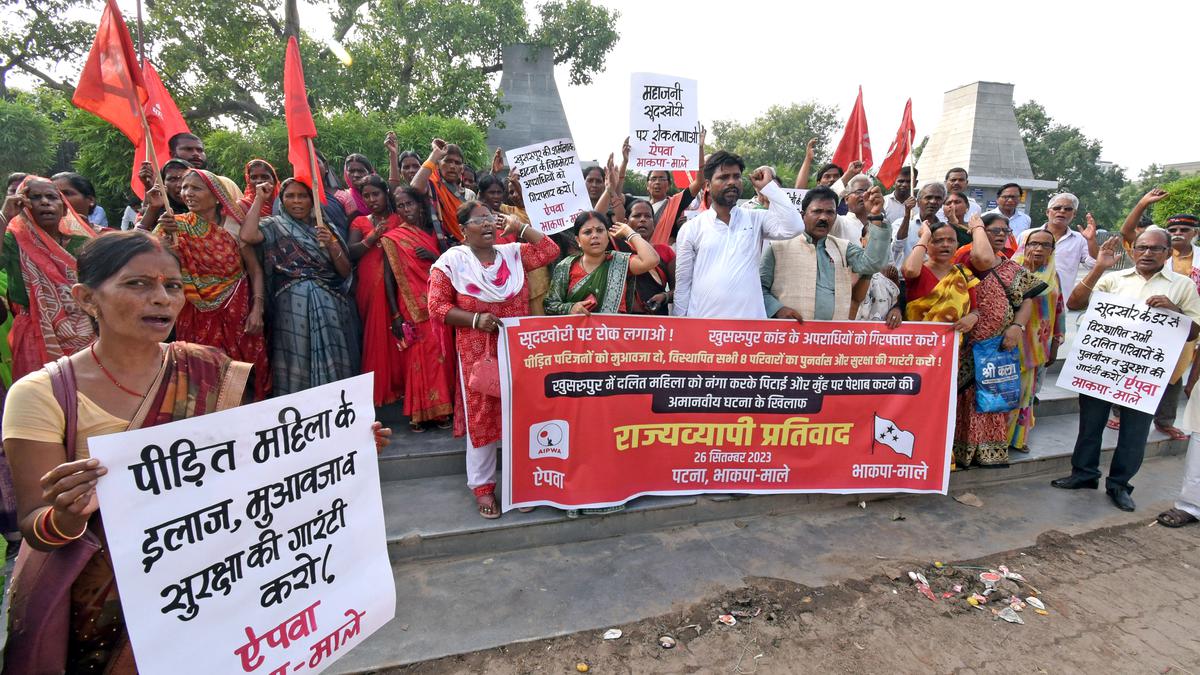
NHRC issues notice to Bihar Government over case of torture of Dalit woman
The Hindu
NHRC takes suo motu cognisance of reports of brutal assault on Dalit woman in Patna. Accused, belonging to dominant caste, tortured her for failing to repay loan. NHRC calls for detailed report from Bihar Chief Secretary and DGP on FIR status, survivor's health and compensation.
The National Human Rights Commission (NHRC) on Tuesday took suo motu cognisance of reports regarding the brutal assault on a 30-year-old Dalit woman in Patna last week. The woman was subjected to torture and inhuman treatment after purportedly failing to repay additional interest on a loan, amounting to ₹1,500 which she had borrowed from a local strongman.
According to reports, the accused had approached the woman four days before the incident, telling her to pay an additional amount as interest. As she went to the police to complain, the accused — who belongs to a dominant caste — assaulted and stripped her and urinated on her.
The NHRC said that it was a clear case of violation of human rights.
“The reported incident is indicative of the free will with which perpetrators acted without a fear of law, which is a matter of concern,” the Commission observed in the notice sent to the Chief Secretary and the Director General of Police of Bihar, calling for a detailed report in the matter within four weeks.
The Commission has asked that the report should also include the status of the FIR, physical as well as mental health status of the survivor and compensation, if any, granted to her.













